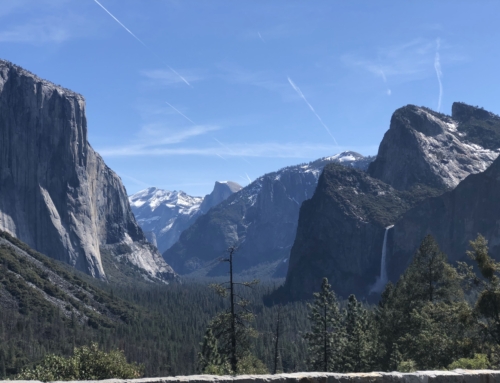Church and COVID19疫情中的教會
Acts 使 徒 行 傳 1:8, 2:42-47 (ref: Acts chap 1&2)
Rev. Aaron Yeung 楊家逵 | February 27, 2022
Good morning! Glad that today worship together with you, and thanks for the opportunity to share God’s word with you. The topic this morning is “what should churches do in the midst of the pandemic.
- In appearance the Church is in crisis.
In beginning of the pandemic, like many others, I thought it is going to be just like SARS, after several months will be fine; I never thought it would last this long and this severe (2019,20, 21, 22; close to 1 million deaths); besides personal inconveniences, economic impacts, and social unrests, churches too have been greatly affected. Churches could only have Sunday worship; no fellowship, no prayer meeting-if they do have, it is only online-, and so neverminded about outreaches; in fact it is even a challenge just to maintain the membership.
Worse, as many pastors fear, these changes might be here to stay and will have lasting impact, i.e. people has become too used to online participation and the many choices available. So recently, there are lots of pastoral discussion seminars about how to do church in the aftermath of the pandemic, such as what new approaches or format, etc.
- In reality the Church is in God’s hand
Indeed, it is natural and understandable that we become anxious about the church’s future, especially for leaders. But from God’s word, we see that actually we don’t have to worry, because a church is not a human organization. If it is merely a human organization, then yes; and actually with or without pandemic there is no certainty of future. As you know, for a human organization to succeed it is all about timing, trends, right place, right opportunities; so when things change and these factors are no longer favorable it will encounter crisis and might even collapse, e.g. like my favorite Souplantion!
However, the Church is God’s people, is God’s family, God’s house, formed according to God’s eternal plan, nurtured by God’s fatherly care, and so it will continue to grow and expand, just as Jesus foretold in Matthew 24; he said “this gospel of the kingdom will be preached in the whole world as a testimony to all nations”
Praise the Lord, even though at the present moment the gospel has not yet reached the end of the world, it has been preached to most parts of the world. And the success is not because all the while there were little opposition and obstacles, no pandemic. No, history tells us that the church had faced all kinds of challenges, much more than we are facing now! We don’t have to go too far back; we can see this in the Church in China. Despite of oppression and persecution by the communist regime the Church in China has kept growing; now estimated at 100 million. This is not incidental but was foretold by Jesus in Matt 16:18: he said “I will build my church, and the gates of Hades will not overcome it”; and the reason is, as Jesus said, “I will be with you to the end of the age!”
- The Church as a divine initiation
From Acts, we see more clearly this truth. We see in the very beginning how God brought the church to birth with great power and wisdom. Chapter 1 records that Jesus, after he rose from the grave, returned and met again with the disciples to instruct them to preach the gospel to the ends of the world, but he told them that first they must wait for the coming of the Holy Spirit. Why? That’s because He knows that they could never do it on their own; their task is beyond human wisdom and power and they would be facing all kinds of obstacles and hostilities. But when the Holy Spirit comes they will be empowered to be His witnesses. Therefore, Brothers and sisters, likewise God knows our struggles and challenges in the midst of pandemic and we shouldn’t feel we are lost and out of control.
Back to Acts, surely 10 days later the Holy Spirit came. Chapter 2 says it was during the time of Pentecost. Why during Pentecost? It was not random. It is because during Pentecost pious Jews and proselytes living in other Roman provinces would return to Jerusalem to worship. Hence, during Pentecost, there would be big crowds gathered; not only big crowds but big crowds of different nationalities, speaking different native languages. It is kind of like you immigrated to USA, then some of your children decided to go to Mexico or Brazil to do business; then their children grew up there but later went o France or Germany to study. They found wives or husbands there and live there. Then some of their children, (i.e. your grand, grand children) who grew up there decided to go to Africa and Iraq as missionaries and they met their fiancé there. Now when you are 120 years old, everyone decided to return for your 120 birthday party. Such would be a historical moment, isn’t it? And what a wonderful time to talk about your legacies, right? But there is a problem, namely, language barrier. You have to be able to speak in Spanish, Portuguese, German, French, Arabic…!!
But praise the Lord this would not be the disciples’ problem at Pentecost, because the Holy Spirit came. 2:2-4 says:
Suddenly a sound like the blowing of a violent wind came from heaven and filled the whole house where they were sitting. 3 They saw what seemed to be tongues of fire that separated and came to rest on each of them. 4 All of them were filled with the Holy Spirit and began to speak in other tongues as the Spirit enabled them.
What kind of languages? And what did they talk about? We can see in v.8-11, the people who returned were asking:
Then how is it that each of us hears them in our native language? 9 Parthians, Medes and Elamites; residents of Mesopotamia, Judea and Cappadocia, Pontus and Asia 10 Phrygia and Pamphylia, Egypt and the parts of Libya near Cyrene; visitors from Rome 11 (both Jews and converts to Judaism); Cretans and Arabs—we hear them declaring the wonders of God in our own tongues!”
Probably you don’t recognize all these place names but at least you have idea where some of them are, such as: Mesopotamia, Asia, Pamphylia, Egypt, Rome, Arabia; in other words, black, yellow and white were there and the native languages were distinct, not like Mandarin and Cantonese! Moreover, they all spoke about the same thing, i.e. gospel, the resurrection of Christ! What an awesome phenomenon!
And when the returning Jews heard the heavenly noise and the gospel proclaimed in their native languages, they were perplexed and amazed. Text says, “Utterly amazed, they asked: “Aren’t all these who are speaking Galileans?
Galilee was sort of a countryside, a fishing town, so the people there not only were uneducated, they might not even have heard of other languages. There was no way they could have learned or imitate. So it was nothing less that a supernatural phenomenon and so some obstinate Jews mocked them as being drunk.
And so Peter took hold of the opportunity to preach the gospel. Peter told them that they were not drunk with wine but with the Holy Spirit, which is what was spoken by the prophet Joel. Joel was a prophet of 400 years ago; in other words 400 years ago God foretold that after He fulfills salvation through His Son as promised, He will fill His spokesmen with the Holy Spirit and send them to testify. So now that the Holy Spirit came after Jesus died on the cross and rose, this implies that Jesus, who they rejected, is the promised Messiah/Savior. Imagine how bad those Jews would have felt! Indeed, v.37 says: When the people heard this, they were cut to the heart and said to Peter and the other apostles, “Brothers, what shall we do?” But Peter told them: don’t worry, God knew already; just repent and be baptized in Jesus’ name and join the church. And so on that day 3 thousands believed. And that’s how the church was born in one single day!
So now we see that when Jesus told the disciples to wait for the Holy Spirit, it was not that He didn’t know when God would do it; or perhaps God was not quite ready; no, rather God has a precise time in mind, i.e. Pentecost. Think about it, if the Holy Spirit had come before or after Pentecost, then the Jews from all over the world would have missed hearing the message; not only that, also it wouldn’t be able to demonstrate that the gospel is universal, not only for certain people. Have it happened to you when you share Christianity with older folks and they rejected it as “western religion” and said “We Chinese should worship Buddha. ”?
This account shows us clearly that the church is completely in God’s hand: before anything happens to the church He knew and prepared for it, and so we can be confident that the church will never be helpless and without direction.
Now of course I know that in some period and some places the Church seemed to be crippled and couldn’t stand, and in fact a certain church even closed up. But that is not because God was absent or could not protect the church from external forces; rather, it wasn’t the time to intervene or that the church itself was disobedient, being displeasing and so severing themselves from God’s protection, like the Prodigal. E.g. in Rev. 2-3, we see it happened to 5 such prodigal churches: when they lost first love (Ephesus), when they embraced false teachings of Balaam (Pergamum), when they condone immoralities (Thyatira), when they became lukewarm (Laodicea), and when they are faking (Sardis); but in the contrary even the weakest churches under severe hardship, like Smyrna and Philadelphia, were in God’s watch.
- The church as human response
So Brothers and Sisters, the pandemic might be God’s test on our faithfulness; hence, we should remain faithful, keep doing what we are supposed to do; and this is the main point of my message. Today’s text, 2:42-47, tells us what we must do. It says the disciples didn’t go back home and mind their own businesses; instead they gathered faithfully. If we use today’s language: that is they never skip a Sunday, never absent because of special sales or because of an NFL championship game!
And it says they were faithful in the following:
- The “apostles’ teaching”. Now what did the apostles taught? Didn’t specify, but definitely it was not the Mosaic laws; also, at that time the NT epistles were not yet in place (no doctrine yet); so rather, they were teaching Jesus’ teachings, such as recorded in the Gospels. Remember in Matt 28, Jesus told the disciples to make disciples of all nations, and one of the 3 main tasks is “teaching “what I have taught you.” So if we will, basically they were teaching the believers how to imitate Jesus, to live the new life in the kingdom of God. That’s why a church should have Sunday School and Sunday School should focus on Jesus’ teaching, teaching believers how to live the new life, how to show Jesus before others. It should not be just for gaining more knowledge; otherwise we might just grow bigger in the head and not in Christlikeness.
- “Fellowship”: often in our mind that is coming together on Friday night, some singing, sharing and have some discussion on a topic and then eating refreshments (so someone says “fellowship” in Chinese is “for eating only”).
That’s alright; but the word “fellowship” in Greek often carrying meaning of partnership, like in business. So fellowship actually means to live out the new life together with the gospel in view, with the purpose to advance the gospel. Indeed, getting a person saved is not the work of one person or certain gifted spiritual leaders but must involve others. Statistically, it is found that a person come to accept Christ after having interacted for some time with at least 5 people, i.e. having relationships with 5 believers, because it takes that many “life witness” to convince them that the gospel is real. So if you want to bring someone to Christ, try involve others. E.g. you can invite the person to your birthday party, but also invite a few brothers and sister; of course that means others brothers and sisters should be available, and gradually he/she will get to know them, see their value, faith and mannerism, etc., then in right time you can ask him/she to church or share your testimony.
- They faithfully “break bread together”: there are two views of what it means: a.) eating together, sharing of food; b.) which is more likely, it is “holy communion”, remembering Christ’s sacrifice to redeem us, and exalting Him publicly as His redeemed people; as Peter says in 1 Pet 1:19: “it was not with perishable things such as silver or gold that you were redeemed from the empty way of life you inherited from your forefathers, but with the precious blood of Christ, a lamb without blemish or spot.” This practice is to help believers to treasure salvation, to treasure our Lord and relationship with Him. It is we have Veterans Day to remember the fallen soldiers? That is not only to treasure their lives but also to remember the cost for freedom and so love our country.
- “Pray together”: it does not refer to just prayer in general; it is not about praying for personal needs and blessings but for God’s kingdom, or if you will, the Lords’ prayer. They have heard of the gospel and the promised kingdom, so their hearts were burnt with zeal regarding the coming kingdom.
- “Everyone was filled with awe at the many wonders and signs performed by the apostles.” But what enable the apostles to do miracles? Who else but God Himself can do miracles, right? In other words, God is working in their midst, through them and for them.
- But not only miracles generated awe, also what follows next: All the believers were together and had everything in common. 45 They sold property and possessions to give to anyone who had need. 46 Every day they continued to meet together in the temple courts. They broke bread in their homes and ate together with glad and sincere hearts, 47 praising God and enjoying the favor of all the people. In short, it is their unity, their change in identity, their value, attitudes, etc.
- Then lastly it says “And the Lord added to their number daily those who were being saved.” We are not told how many per day, but even if just one person a day would be a great impact to the world and the church! Here, it reminds us that programs, though important, cannot building up the church; it is manifestation of the newness of life; it is spiritual health and vitality that draw people to God. This is very reasonable: as you know if a city has a good schools the property value will go up tremendously, why? It is because the first priority of parent is good school for their children; likewise, God only leads His precious children, the newly saved, to a church that will help them to learn and grow.
So Brothers and Sisters, even though the pandemic has greatly impacted the church and we don’t know when it will end, and some members will drop out, but for those who remain, if we do these things faithfully & diligently, I am sure the Lord will lead us securely into the future.
Amen.



